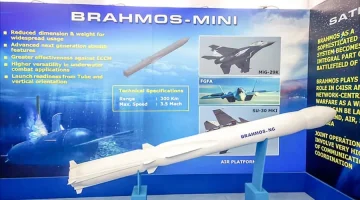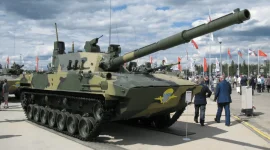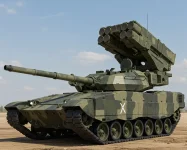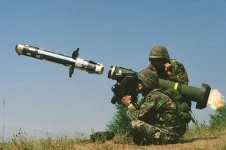- Views: 3K
- Replies: 24

In a strategic shift aimed at maximizing firepower while minimizing expenditure, the Indian Army is prioritizing the indigenously developed Guided Pinaka rocket system over the acquisition of expensive tactical missiles.
This decision comes as DRDO has been given the green light to develop two extended-range variants of the Pinaka, with ranges of 120 kilometers and 300 kilometers, respectively. Both will feature advanced guidance systems for enhanced precision.
Of particular interest to the Army is the 300km variant, which utilizes a larger 300mm diameter rocket. This increased size allows for a greater payload capacity while maintaining compatibility with existing Pinaka launchers, including those deployed in challenging high-altitude environments along India's borders.
This development reflects the Army's pursuit of cost-effective solutions that can fulfill a dual role: providing conventional firepower and potentially acting as a delivery system for tactical nuclear weapons if the strategic situation demands it.
The Pinaka Multi-Barrel Rocket Launcher (MBRL) system has a proven track record with the Indian Army, demonstrating its effectiveness in conventional warfare scenarios like the Kargil War.
While upgrades have steadily increased its range and accuracy, the new 300km Guided Pinaka variant represents a significant leap forward. It promises the extended reach and precision necessary for strategic operations, potentially mirroring the capabilities of the short-range tactical missile Pralay, which has seen limited production due to cost constraints.
Pralay, a quasi-ballistic missile capable of carrying conventional or nuclear warheads, offers a range of 150km to 500km. However, its high cost and the need for a more versatile and affordable option for both conventional and nuclear roles have led to a scaling back of its production.
The 300km Guided Pinaka variant could bridge this gap, providing a cost-effective alternative with comparable strategic reach. Crucially, it can be deployed from the Army's existing Pinaka launch platforms, further enhancing its operational flexibility.
The Army's enthusiasm for the 300km Guided Pinaka stems from its potential to function as a precision "missile" for deep strikes against high-value targets such as enemy infrastructure, command centers, and troop concentrations. This capability could reshape tactical doctrines, providing Indian forces with enhanced operational flexibility and a credible deterrent against potential adversaries.





